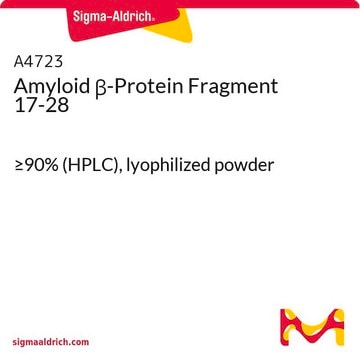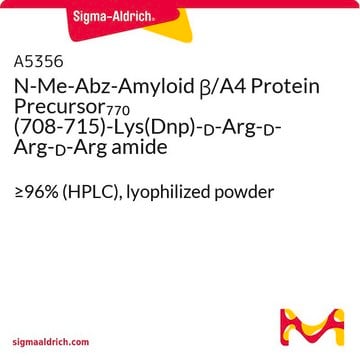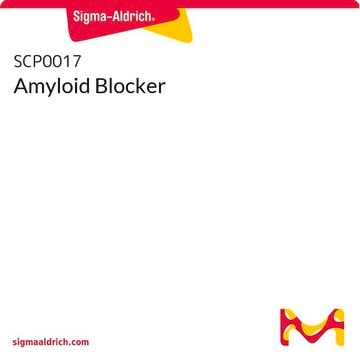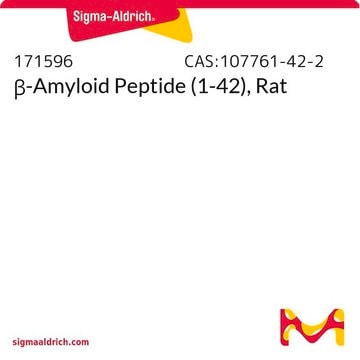A1075
Amyloid β Protein Fragment 1-40
≥90% (HPLC), powder
Synonyme(s) :
Aβ40
About This Item
Produits recommandés
Niveau de qualité
Pureté
≥90% (HPLC)
Forme
powder
Couleur
white
Solubilité
1% acetic acid: 1 mg/mL
saline: insoluble
Numéro d'accès UniProt
Température de stockage
−20°C
Informations sur le gène
human ... APP(351)
Vous recherchez des produits similaires ? Visite Guide de comparaison des produits
Amino Acid Sequence
Description générale
Application
- in the temperature based conformational studies using Fourier transform infrared/differential scanning calorimetry (FT-IR/DSC) studies
- as a reference standard in sandwich-type enzyme immunoassay for quantifying amyloid A4 protein in cerebrospinal fluid of patients with head trauma
- as a component of embryonic stem cell medium to inhibit amyloid deposition in fibroblasts
Actions biochimiques/physiologiques
Reconstitution
Autres remarques
Code de la classe de stockage
11 - Combustible Solids
Classe de danger pour l'eau (WGK)
WGK 3
Point d'éclair (°F)
Not applicable
Point d'éclair (°C)
Not applicable
Équipement de protection individuelle
Eyeshields, Gloves, type N95 (US)
Certificats d'analyse (COA)
Recherchez un Certificats d'analyse (COA) en saisissant le numéro de lot du produit. Les numéros de lot figurent sur l'étiquette du produit après les mots "Lot" ou "Batch".
Déjà en possession de ce produit ?
Retrouvez la documentation relative aux produits que vous avez récemment achetés dans la Bibliothèque de documents.
Les clients ont également consulté
Notre équipe de scientifiques dispose d'une expérience dans tous les secteurs de la recherche, notamment en sciences de la vie, science des matériaux, synthèse chimique, chromatographie, analyse et dans de nombreux autres domaines..
Contacter notre Service technique
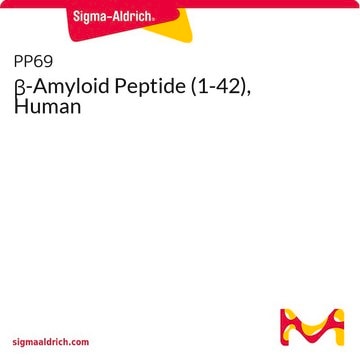




![[Gln22]-Amyloid β 1-40 human ≥95% (HPLC)](/deepweb/assets/sigmaaldrich/product/images/707/874/59f84b84-17c2-494f-b2ae-4ca860b83976/640/59f84b84-17c2-494f-b2ae-4ca860b83976.jpg)

